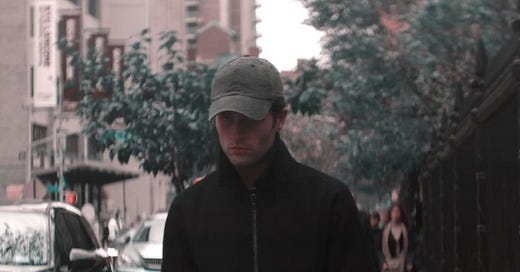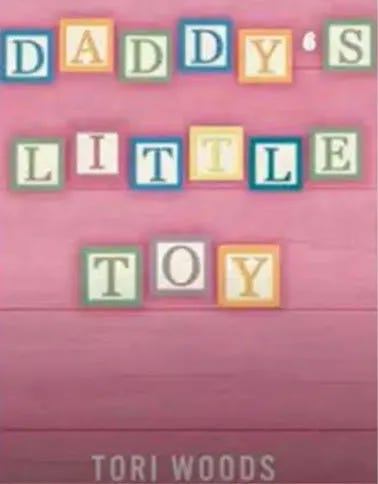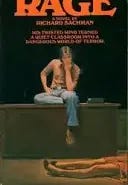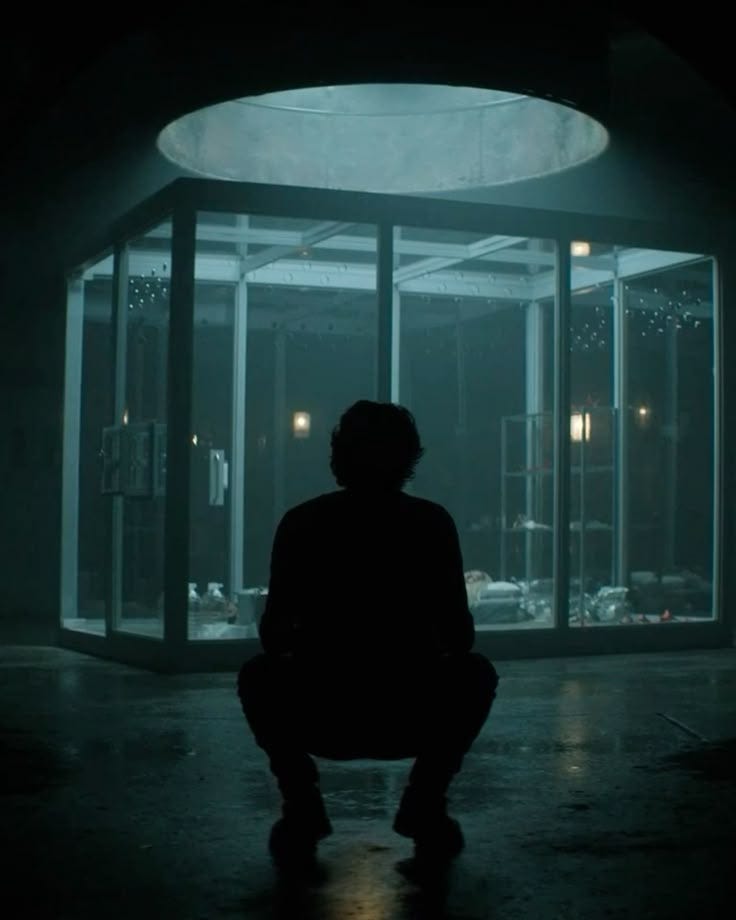‘I want Joe Goldberg to stalk me.’
I’ve heard girls say this and worse on TikTok.
There’s something about the way he looks at women, they say, it feels like love. Like devotion. Like being truly seen.
I call it something darker. Ever since the rise of BookTok smut and dark romance, we stopped flinching at red flags. We used to be obsessed with body counts – how many girls were before me? Now we’re making edits of Joe Goldberg’s total kill count at the end of the season. When did we start preferring that kind of number? When did we become more comfortable with a man who’s murdered women than a man who’s slept with them?
#BookTok began in early 2020 where it started as a space for book lovers, however, has since turned into a smut factory. While there isn’t anything inherently wrong about that, (read whatever floats your boat) over the years more problematic work is being celebrated and romanticised by the community and in turn allows authors to degrade women under the guise of BookTok. This is particularly popular in the dark romance genre. Dark Romance went from ‘bad boy with a troubled past’ to ‘literal serial killer with a knife kink’. This is becoming so widely accepted that only the most troubling books are being flagged. Take Daddy’s Little Toy by Lauren Tesolin-Mastrosa, or ‘Tori Woods’ as per her pen name. If you think Sabrina Carpenter romanticised paedophilia, wait till you hear this. It’s about a ‘barely legal’ 18-year-old woman being the subject of her father’s friend infatuation since she was three years old.
If this wasn’t enough, the cover design features the title spelled out in children’s letter blocks. The author has since been charged with producing child sexual abuse material, but why has this been the only book that’s been widely flagged?
Haunting Adeline by H.D Carlton from the ‘Cat and Mouse’ series has a 3.95-star rating on GoodReads, with 43% of readers giving it five stars. The book follows Zade Meadows as he fawns over Adeline, stalks her, and sexually assaults her multiple times, yet romanticises it because he ‘loved her’. The top five-star reviews not only show support for Zade’s actions but calls for him to have sex with the reader.
If we can agree that paedophilia is abhorrent, why does sexual violence get a pass when it’s dressed up as desire? Sure, fiction is fiction, but romanticising an experience that 97% of women only from the ages 18-24 (a key percentile of the age of booktok) have endured takes away from their experiences and instead tries to claim that what happened to them was ‘romantic’ and a representation of how much ‘love’ their attacker had for them.
If we wouldn’t tolerate this behaviour in reality, then why are people into it?
I think it’s less that we find these qualities attractive and more of a coping mechanism. Men like Joe Goldberg do exist, he’s very reminiscent of Ted Bundy. That charismatic, conventionally attractive man who would do no wrong because he’s good looking. The fact that someone like that is so appealing to the female demographic is terrifying, because it reminds us of how naïve we are. We no longer think, ‘She’s so stupid why would she go with him? I would never do that’ because we realise how easy it is to be manipulated by a pretty face. When media can portray that feeling it is very effective but just because the characters are attractive and manipulate the viewer doesn’t mean we should romanticise them. We’ve been taught that love is obsession, jealousy, and possession. If you were to take some of the most popular romcoms and put thriller music in the place of the fun and sweet soundtrack, we would realise how flawed these characters are.
Noah continuously pursued Allie in The Notebook until they finally ended up together, romantic or obsession? In Love Actually, Mark shows up at Juliet’s doorstep professing his love for her even though she is in love and just married his best friend. Finally take one of my personal favourites, Notting Hill, where Will forces his hand and puts Anna in a position to make a snap decision in front of the entire media and her place of work. Why do we not view any of these situations as emotional manipulation? Can manipulators only be inherently evil people like Joe? Or is Joe just a more honest version of these ‘yearning’ men?
If we grew up thinking these couples had a perfect relationship, when it stemmed from manipulation, then it’s no wonder why so many girls romanticise the idea of degradation. It has become a kink in booktok because it allows women to oversee their degradation, unlike where it is horrifying and forced upon them. Women are conditioned to find danger sexy because danger is familiar. We want fictional men to only love us and hate everyone else unlike real men, and so we romanticise Joe Goldberg, ‘he kills for her’ becomes ‘he cares enough to do anything’. We need fiction to cope with realities and horrors of man.
We all know this is fiction, but how much are we desensitising ourselves? If we continue to romanticise horrific treatment of women like sexual violence, then it will become more ‘mainstream’. People were concerned with the Netflix show Adolescence because ‘what if it gave other young boys inspiration?’. So why are we not showing the same level of worry for aspects of media that praise men for these actions?
Stephen King penned a book, Rage, under the pseudonym Richard Bachman, which later got withdrawn from publication after unsettling real-world events that echoed the plot. Rage was published in 1977 and delves into Charlie Decker’s mind who, after a violent outburst, kills his teacher and holds his classmate’s hostage. Then in 1988, Jeffrey Lyne Cox brought a semi-automatic rifle to school and held a classroom hostage for over 30 minutes. Cox had apparently read Rage multiple times and identified closely with Charlie. Almost another identical situation followed in 1989.
While many people enjoyed this book and found it thrilling, should it still be sold, knowing that people have taken inspiration from it before? If you translated this back to Haunting Adeline, then just because some people enjoy the twisted toxicity of the ‘relationship’, should it continue to be celebrated? What if people start taking inspiration from that too – simply because so many women have said how attractive it is.
If you look at the TikTok comments in edits of Joe Goldberg, you will see a wide arrange of women wanting to be locked in his cage. While these claims are purely for humour, it does still spread the wrong message. If you got locked in a cage in real life by a hot man you would be terrified, not lusting after him.
So why do some women still want Joe? Maybe it’s because he chooses you. He notices everything. He makes you feel singled out and special. Realistically that is all a woman wants. I want my boyfriend to pick up on my entire mood just by catching my eye across the room. Joe does achieve that. Real men disappoint compared to Joe. Joe would kill for you, whereas you can’t even get your boyfriend to wash his dishes after he uses them. It’s not about Joe, it’s about what women are starved for.
So, can we enjoy this media? Sure. I’m not claiming I’m above it. I watched every episode of You, I’ve appreciated Penn Badgley’s looks multiples times throughout that. But we do have to ask why we crave it. Fiction doesn’t excuse everything, but it does reveal what we’ve been taught to want. Maybe the problem isn’t that we want Joe Goldberg. It’s that we don’t know how not to.








